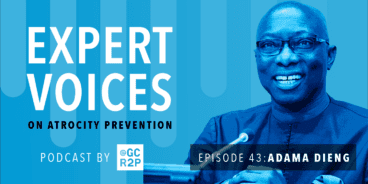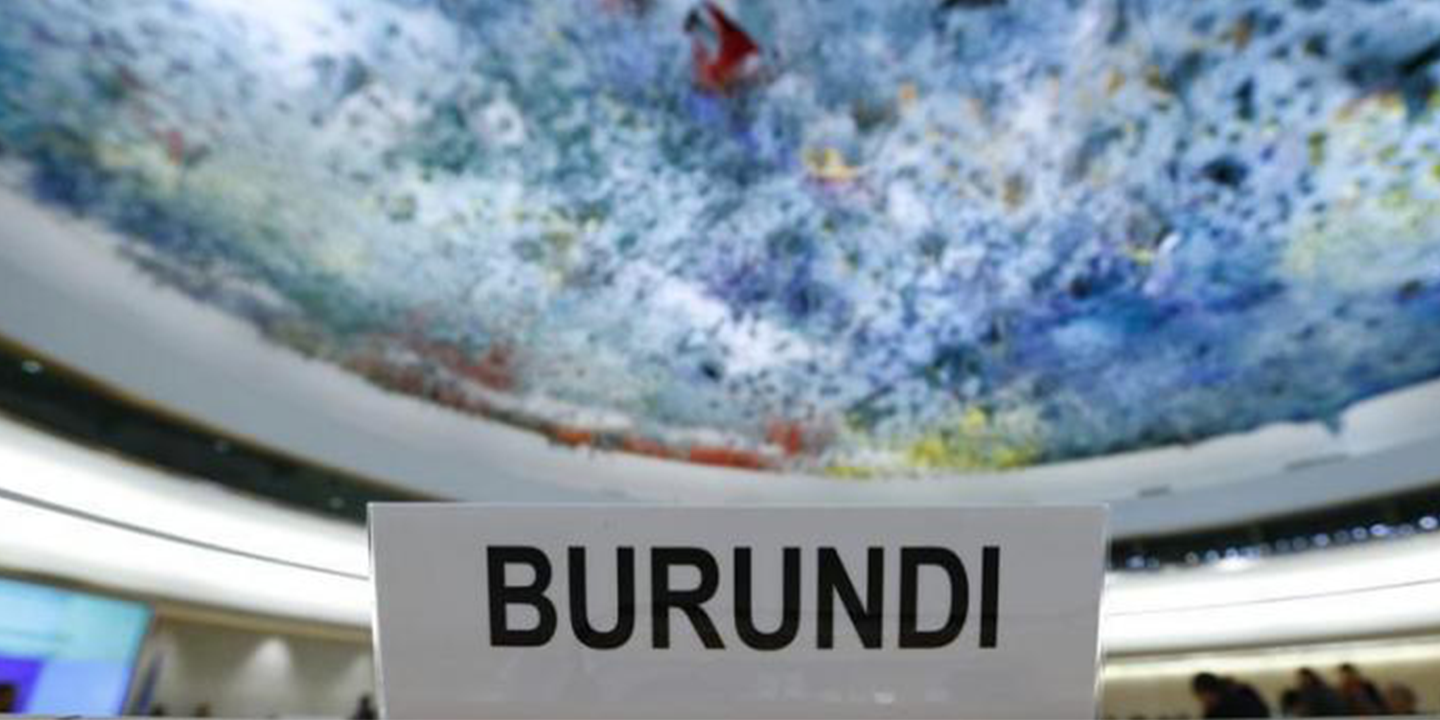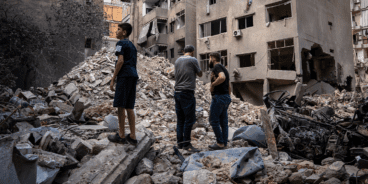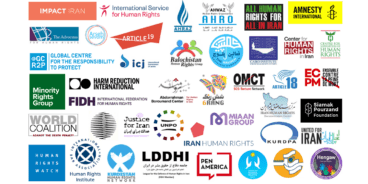

Burundi: Extend the Special Rapporteur’s mandate and ensure adequate funding for his monitoring and documentation work
TO PERMANENT REPRESENTATIVES OF MEMBER AND OBSERVER STATES OF THE UNITED NATIONS (UN) HUMAN RIGHTS COUNCIL (GENEVA, SWITZERLAND)
Excellencies,
At the UN Human Rights Council’s 51st session, in October 2022, the Council extended the mandate of the Special Rapporteur on the situation of human rights in Burundi, which it established a year earlier, at its 48th session. It expressed deep concern about ongoing human rights violations and abuses in Burundi and regretted the Burundian Government’s lack of cooperation with human rights bodies and mechanisms.
As serious human rights violations persist in Burundi and the Government has failed to hold perpetrators accountable or take the concerns raised by Burundian and international actors seriously, the Council should not relax its scrutiny. At its 54th session (11 September-13 October 2023), it should extend the Special Rapporteur’s mandate for a further year.
Additionally, the Human Rights Council should ensure that the Special Rapporteur is able to fulfil his mandate, as per resolution 48/16, to, inter alia, “monitor the situation of human rights in Burundi, […] make recommendations for its improvement, [and] collect, examine and assess information from all relevant stakeholders […], building upon the work of the Commission of Inquiry.” To fulfil these monitoring and documentation functions, the Special Rapporteur requires adequate funding for at least one additional staff member, which the UN Secretary-General should provide to him.
~ ~ ~
Burundi’s human rights situation remains of serious concern. The limited improvements since President Évariste Ndayishimiye was sworn in, in June 2020, as well as superficial steps and promises to respect freedom of expression and improve the judiciary, have not translated into structural reforms. Many of the issues highlighted in reports by the Commission of Inquiry (CoI), the Office of the UN High Commissioner for Human Rights (OHCHR), the Special Rapporteur, and independent civil society organisations, including gross and systematic human rights violations and abuses, continue with impunity.
No senior officials have been held accountable for violations in relation to the repression of 2015 protests and the targeting of political opposition members and supporters, human rights defenders (HRDs), journalists, and other critical and independent voices. Instead, some appear to have been rewarded with high-level government positions.
Violations committed since 2015 include extrajudicial killings, enforced disappearances, arbitrary arrests and detentions, acts of torture and other cruel, inhuman or degrading treatment or punishment, sexual and gender-based violence, unlawful restrictions on civic space, including on the rights to freedom of opinion, expression, peaceful assembly and association, and grave violations of economic, social and cultural rights, which are intertwined with the economic underpinnings of the State. The CoI concluded that crimes against humanity may have been committed.
Perpetrators include state and para-state actors, namely government officials, members of law enforcement and security forces, including the police and National Intelligence Service (SNR), and members of the ruling CNDD-FDD party’s youth league, known as the Imbonerakure. Impunity for perpetrators of violations and abuses remains entrenched. Thousands of victims are still waiting for redress and justice.
In his oral update to the Council, in July 2023, the Special Rapporteur, Mr. Fortuné Gaetan Zongo, expressed concern over systematic self-censorship in the country, arbitrary arrests, reprisals and the use of trumped-up charges against HRDs and journalists. He raised the alarm about Burundi “becoming a forgotten crisis” and called on Burundi’s friends not to forget Burundians, “who are thirsty for justice and dignity.”
Most independent human rights organisations are still unable to operate in Burundi. The activities of several of the country’s most prominent human rights groups remain either suspended or outlawed since 2015. In December 2022, lawyer and former HRD Tony Germain Nkina was released after spending over two years in prison on politically-motivated charges linked to his human rights work. Many HRDs and journalists remain in exile, twelve of whom have been convicted in absentia and sentenced to life imprisonment, as announced by Burundi’s Supreme Court in February 2021. Floriane Irangabiye, a journalist, is in prison solely for exercising her right to freedom of expression. In May 2023, a Court of Appeal confirmed her conviction to ten years’ imprisonment on charges of undermining national security. Irangabiye suffered a severe respiratory ailment in prison in July 2023.
Superficial signals in favour of a more open civic space have not been matched by structural reforms or tangible improvement in the environment in which civil society organisations operate. While five arbitrarily detained HRDs were released in April 2023, two were convicted of rebellion, fined 50,000 Burundian Francs (USD 25), and handed a two-year suspended sentence. In June 2023, the main opposition party, the National Congress for Freedom (Congrès national pour la liberté, CNL), saw its activities suspended by the Minister of Interior, following an internal split in the party and an attempt by some members of the CNL political structure to oust the party leader, Agathon Rwasa. Party members loyal to Rwasa denounced the government’s intervention as “a serious violation of the Constitution” and “an attempt to destabilize and weaken the CNL.”
The arrest of Prime Minister Alain-Guillaume Bunyoni, who is now in pre-trial detention on a number of serious charges, should be an opportunity for justice. However, it is regrettable that he is not facing charges for, nor is there any indication that there has been an investigation into, his involvement in ordering or overseeing serious human rights violations, including torture and killings by the police, particularly when he was Minister of Public Security, from 2007 to 2011 and from 2015 to 2020. His rights to due process and fair trial must also be upheld, as for any Burundian citizen.
~ ~ ~
The Government of Burundi continues to disregard or minimise the severity of human rights challenges in the country and refuses to grant access to and meaningfully cooperate with independent human rights bodies and mechanisms. These include the Special Rapporteur, OHCHR (which had to close its country office in 2019 at the request of the Government), and the African Commission on Human and Peoples’ Rights (ACHPR).
On 3 July 2023, the Burundian Government’s delegation walked out of a UN Human Rights Committee meeting to discuss its periodic report. The delegation mentioned the presence of a human rights lawyer and HRD, who was duly accredited for the session, as an excuse to avoid answering the Committee’s questions. Burundi’s council of ministers “deplored” the attitude of the Human Rights Committee, accused it of “promoting impunity,” and congratulated the delegation for its “responsible, patriotic and civic-minded attitude”. While this move is unprecedented for a State under review, it follows a pattern of non-cooperation with UN human rights bodies and mechanisms and hostility towards HRDs. On 6 July 2023, during the last Human Rights Council session, in response to the Special Rapporteur’s update, the Government said that “it is high time for the majority of delegations sitting on this Council to finally realise that this Council has been manipulated” and that “the purpose of this country mandate on Burundi is to perpetuate a disinformation campaign [against the country].”
This behaviour is all the more worrying as Burundi is a candidate for a new three-year membership term in the Council (2024-2026), after a first term (2016-2018) during which the Government failed to uphold membership standards, refusing to cooperate with the Council and its mechanisms and openly attacking human rights defenders and UN experts and officials.
~ ~ ~
Considering ongoing grave human rights violations and abuses, the absence of sustainable progress on key human rights issues of concern, including civic space, the risk of an escalation of violations, particularly in advance of legislative elections in 2025 and presidential elections in 2027, concerns regarding the lack of independence of the National Independent Human Rights Commission (CNIDH), and the Government’s continued refusal to cooperate with the UN and regional human rights mechanisms, we believe that the Council should maintain its scrutiny of Burundi’s human rights situation.
We further believe that the Special Rapporteur should be provided with all necessary staff and financial resources to fulfil his mandate as outlined in resolution 48/16. This means, in practice, at least one additional staff member. The mandate’s functions and responsibilities include monitoring the human rights situation in Burundi, making recommendations for its improvement, collecting, examining and assessing information from all relevant stakeholders pertaining to human rights in Burundi, building upon the work of the CoI, advising the Government in fulfilling its human rights obligations, and offering support and advice to civil society and to the CNIDH.
These functions and responsibilities, which are outlined in resolution 48/16, require staff resources, in particular to conduct work relating to the collection and assessment of information pertaining to the human rights situation in Burundi, building upon the work of the CoI. The CoI conducted a “thorough investigation into human rights violations and abuses in Burundi since April 2015, including on their extent and whether they may constitute international crimes” and was tasked with “identify[ing] alleged perpetrators of human rights violations and abuses in Burundi with a view to ensuring full accountability.” Its secretariat comprised over ten staff members. The Commission published five comprehensive annual reports and formulated dozens of recommendations on improving the human rights situation in Burundi. The current level of resourcing for the mandate (namely, one support staff with no additional funding for the Special Rapporteur’s critical monitoring, documentation, reporting, and technical advice functions) does not enable the Special Rapporteur to comprehensively fulfil his mandate.
At its upcoming 54th session, the Council should adopt a resolution that:
-
-
- Extends the mandate of the Special Rapporteur on the situation of human rights in Burundi for a further year;
- Requests the United Nations Secretary-General to provide the Special Rapporteur with the assistance and all resources necessary to fulfil his mandate;
- Reaffirms that all States Members of the Human Rights Council should uphold the highest standards in the promotion and protection of human rights, and urges all States that are candidates for Human Rights Council Membership, including Burundi, to be mindful of these standards;
- Urges the Government of Burundi to fulfil its obligations under national law and international human rights law and to protect civic space, by respecting the rights to freedom of opinion and expression, peaceful assembly and association, upholding the rights of HRDs, and creating a safe environment for civil society organisations;
- Urges the Government of Burundi to cooperate fully with the Special Rapporteur, including by granting him access to the country and by providing him with all the information necessary to properly fulfil the mandate;
- Urges the Government of Burundi to constructively cooperate with the Office of the United Nations High Commissioner for Human Rights, in particular its regional office for Central Africa, and to present a timeline for the reopening of its country office in Burundi; and
- Urges the Government of Burundi to resume meaningful cooperation with African human rights bodies and mechanisms, including the African Commission on Human and Peoples’ Rights.
-
We thank you for your attention to these pressing issues and stand ready to provide your delegation with further information as required.
Sincerely,
- Action des Chrétiens pour l’Abolition de la Torture – Burundi (ACAT-Burundi)
- Action des Chrétiens pour l’Abolition de la Torture et de la Peine de Mort en République Centrafricaine (ACAT-RCA) – Central African Republic
- AfricanDefenders (Pan-African Human Rights Defenders Network)
- Agir Ensemble pour les Droits Humains
- Amnesty International
- Association Burundaise pour la Protection des Droits Humains et des Personnes Détenues (APRODH)
- Burkinabè Human Rights Defenders Coalition (CBDDH)
- Burundian Coalition of Human Rights Defenders (CBDDH)
- Burundian Coalition for the International Criminal Court (CB-CPI)
- Burundi Human Rights Initiative (BHRI)
- Cabo Verdean Network of Human Rights Defenders (RECADDH)
- Central African Network of Human Rights Defenders (REDHAC)
- CIVICUS
- Collectif des Avocats pour la Défense des Victimes de Crimes de Droit International Commis au Burundi (CAVIB)
- Consortium of Ethiopian Human Rights Organizations (CEHRO)
- DefendDefenders (East and Horn of Africa Human Rights Defenders Project)
- Ethiopian Human Rights Defenders Center (EHRDC)
- European Network for Central Africa (EurAc)
- FIDH (International Federation for Human Rights)
- Forum pour la Conscience et le Développement (FOCODE)
- Forum pour le Renforcement de la Société Civile (FORSC)
- Global Centre for the Responsibility to Protect (GCR2P)
- Human Rights Defenders Network – Sierra Leone
- Human Rights Watch
- INAMAHORO Movement
- Institut des Médias pour la Démocratie et les Droits de l’Homme (IM2DH) – Togo
- International Federation of ACAT (FIACAT)
- International Service for Human Rights
- Ivorian Human Rights Defenders Coalition (CIDDH)
- Light for All
- Ligue Iteka
- Network of NGOs for the Promotion and Defence of Human Rights (RONGDH) – Central African Republic
- Nigerien Human Rights Defenders Network (NHRDN/RNDDH)
- Protection International Africa
- Réseau des Citoyens Probes (RCP)
- SOS-Torture/Burundi
- Togolese Human Rights Defenders Coalition (CTDDH)
- Tournons La Page Burundi
- TRIAL International
- World Organisation Against Torture (OMCT)
Related Content


